35+ Sample Vacation Agreement
-
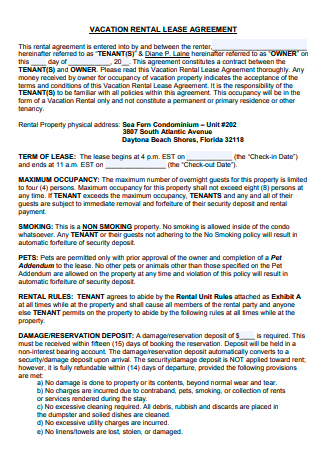
Vacation Rental Lease Agreement
download now -
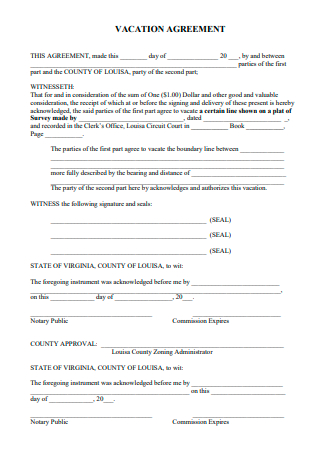
Basic Vacation Agreement
download now -
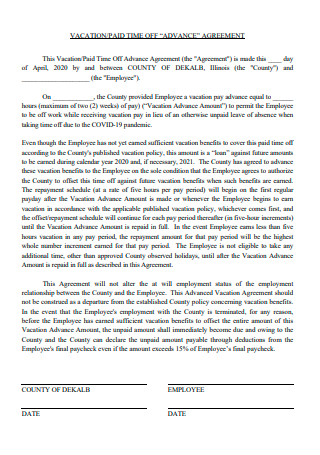
Vacation Paid Time Off Advance Agreement
download now -
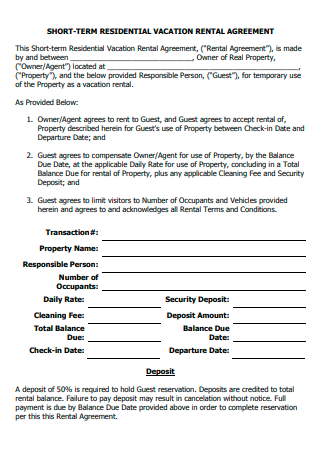
Short-Term Residential Vacation Rental Agreement
download now -
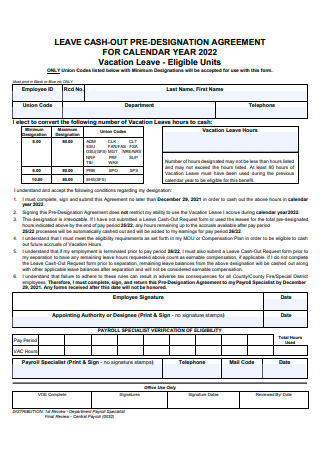
Vacation Leave Agreement
download now -
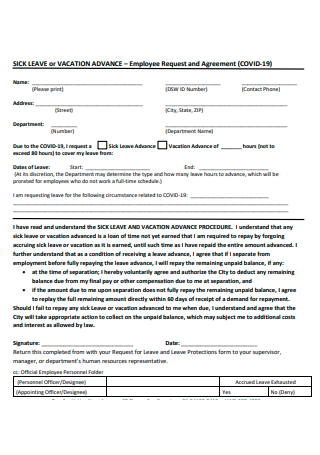
Vacation Advance Employee Request and Agreement
download now -
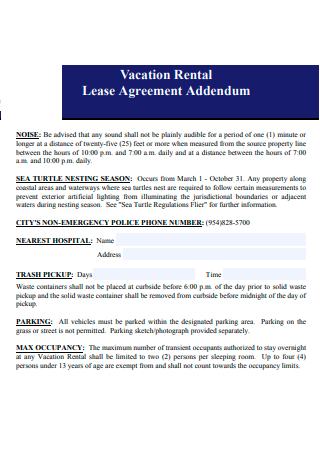
Vacation Rental Lease Agreement Addendum
download now -
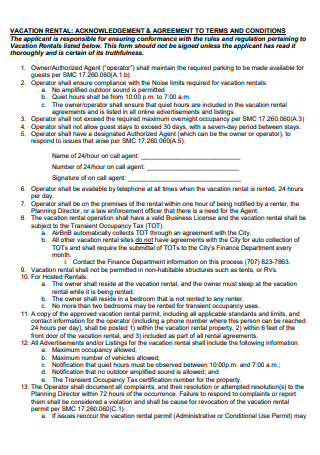
Vacation Rental Acknowledgement and Agreement
download now -
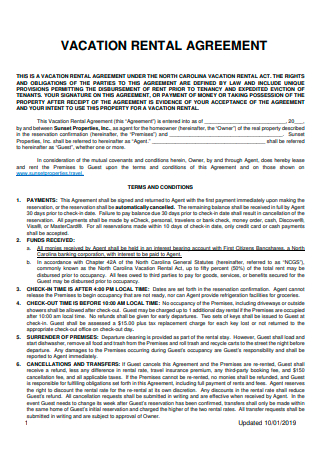
Vacation Rental Agreement
download now -
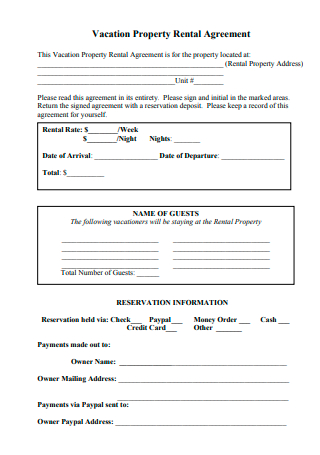
Vacation Property Rental Agreement
download now -
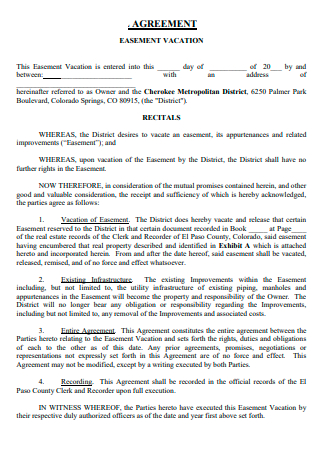
Simple Vacation Agreement
download now -
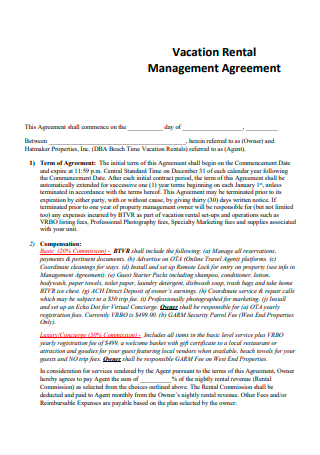
Vacation Rental Management Agreement
download now -
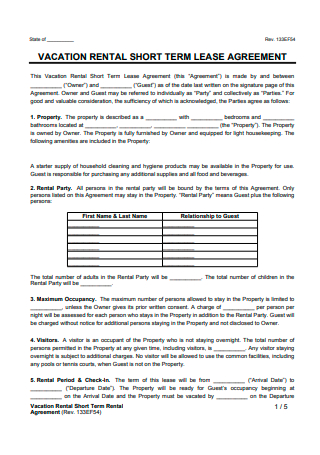
Vacation Rental Short Term Lease Agreement
download now -
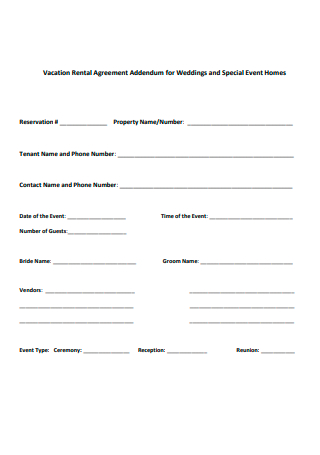
Vacation Rental Agreement Addendum For Weddings and Special Event Homes
download now -
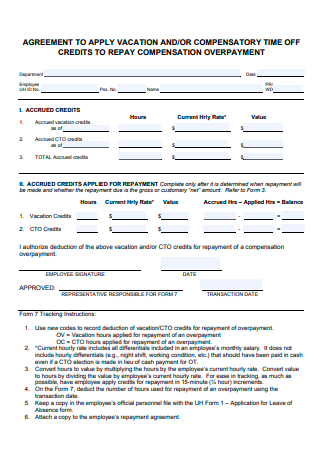
Standard Vacation Agreement
download now -
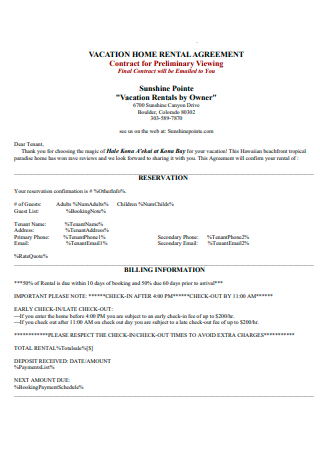
Vacation Home Rental Agreement
download now -
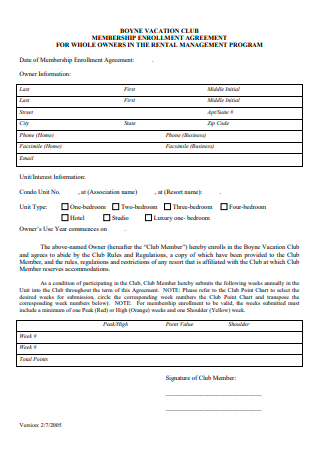
Vacation Club Membership Enrollment Agreement
download now -
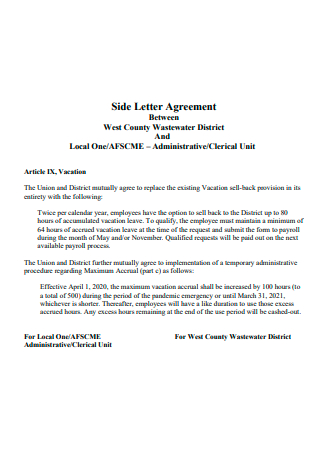
Vacation Side Letter Agreement
download now -
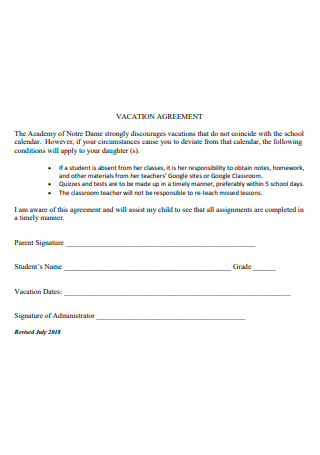
Formal Vacation Agreement
download now -
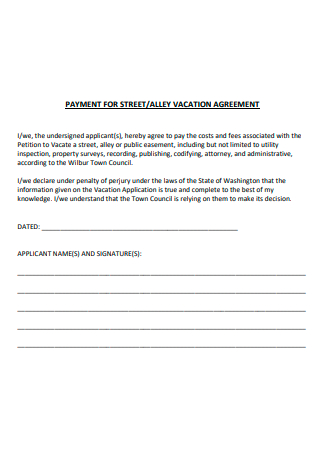
Printable Vacation Agreement
download now -
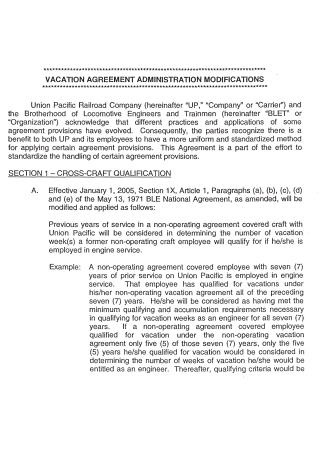
Vacation Agreement Administration Modifications
download now -
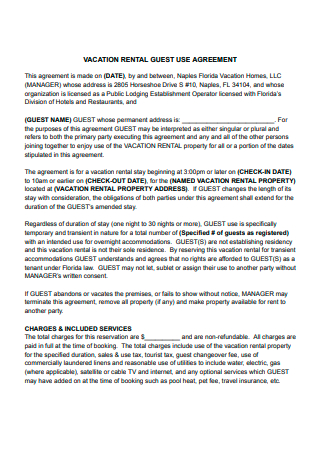
Vacation Rental Guest Use Agreement
download now -
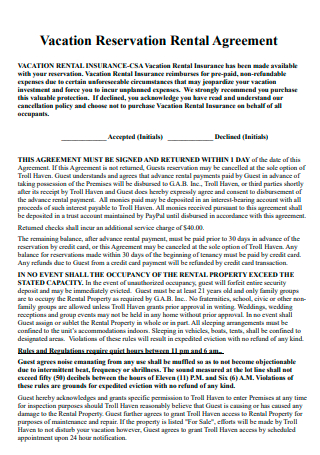
Vacation Reservation Rental Agreement
download now -
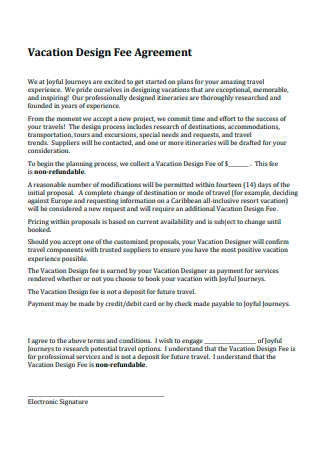
Vacation Design Fee Agreement
download now -
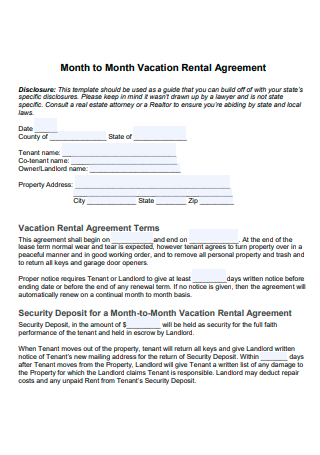
Month to Month Vacation Rental Agreement
download now -
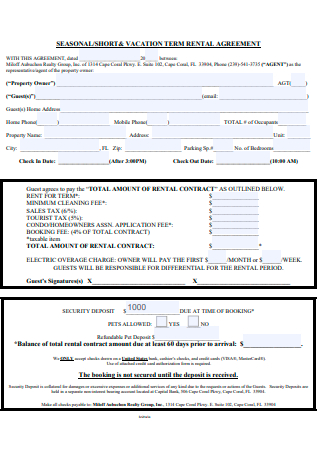
Short and Vacation Term Rental Agreement
download now -
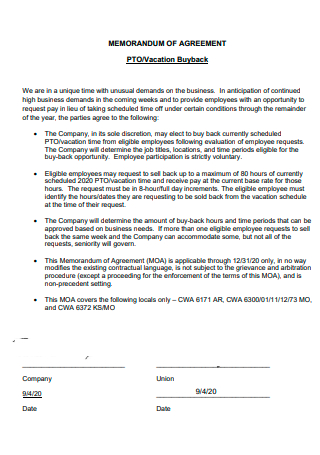
Vacation Buyback Memorandum of Agreement
download now -
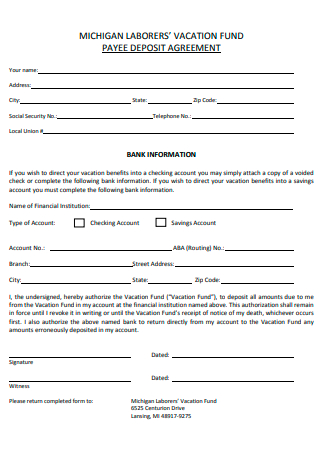
Vacation Fund Payee Deposit Agreement
download now -
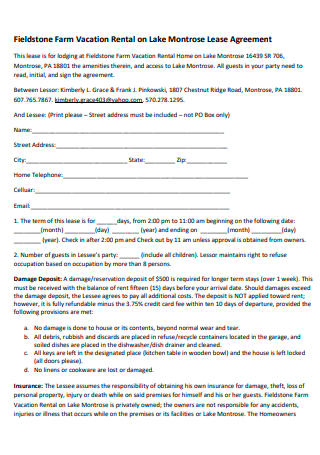
Farm Vacation Rental Lease Agreement
download now -
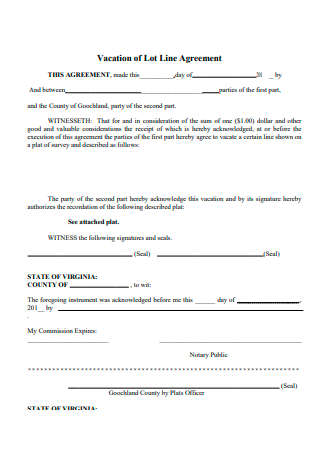
Vacation Line Agreement
download now -
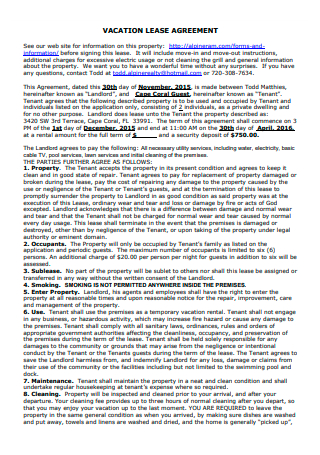
Vacation Lease Agreement
download now -
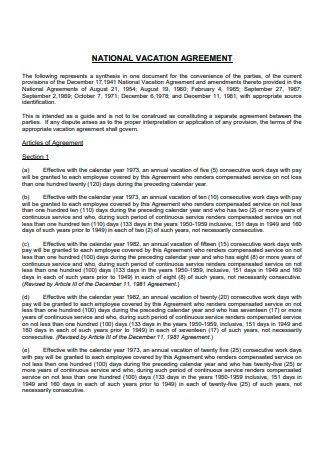
National Vacation Agreement
download now -
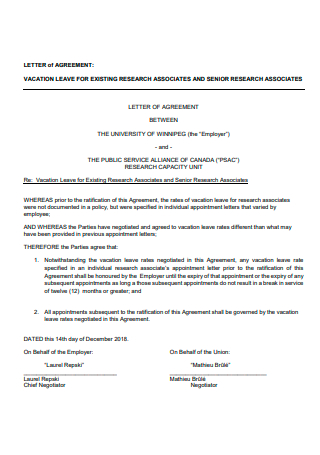
Vacation Leave Letter of Agreement
download now -
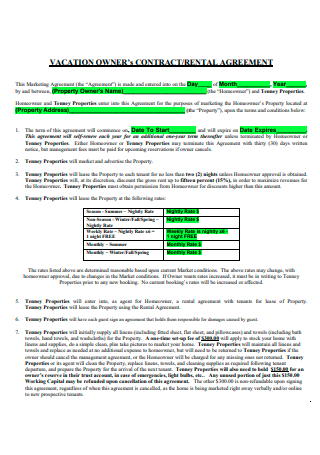
Vacation Owners Contract Rental Agreement
download now -
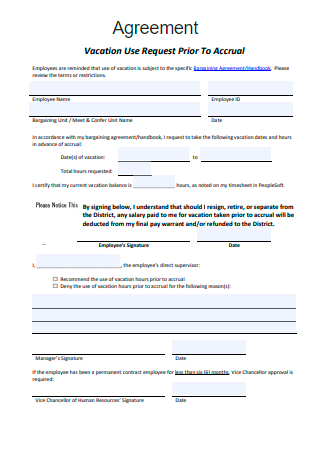
Vacation Use Request Agreement
download now -
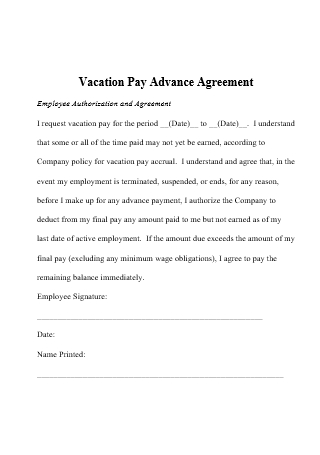
Vacation Pay Advance Agreement
download now
FREE Vacation Agreement s to Download
35+ Sample Vacation Agreement
What Is a Vacation Agreement?
Importance of Taking a Vacation
Benefits Of Owning a Vacation Rental
How To Create a Vacation Agreement
FAQs
How do I write a vacation rental agreement?
Is a vacation rental a lease?
Are companies required to give vacation days?
What Is a Vacation Agreement?
A vacation agreement is a formal written agreement created between a vacation host and a lessee or guest. The agreement outlines the various stipulations regarding the vacation home property and rental stay.
According to a recent article published by CNN, the global vacation rental market is estimated to reach $114 billion by the year 2027. Other data provided by popular vacation rental company Airbnb showed that cabins were deemed the most “wish listed unique stay type” for 2021. Statistics also showed that there was an 80% increase in interest for properties with treehouse views since the start of the worldwide pandemic in March 2020.
Importance of Taking a Vacation
People go on vacations for various reasons. It is oftentimes by choice, but in other cases it is out of need. Employees are awarded vacation leaves for a reason. The saying that “All work and no play makes Jack a dull boy” cannot ring more true. Without the necessary balance needed at work or basically any aspect of an individual’s life, performance and motivation can suffer greatly. The following are just some major reasons why taking a vacation is so important.
Benefits Of Owning a Vacation Rental
Many people dream of having their own beach house or rest house to get away to. Whether it is a beach front property or a cozy cabin situated on a hill, owning one can present many possibilities and opportunities. And although a vacation house is not always the perfect investment, it can come with a number of benefits. The following examples described below are some basic benefits to consider if you’re looking to purchase a vacation rental property.
How To Create a Vacation Agreement
To create a formal vacation agreement, make sure you have all the details prepared. From the complete name of the lessee down to the detailed list of amenities, these all have to be incorporated in the written agreement. However, if you are looking for a quicker and more convenient way of crafting your agreement, using an existing template will save you a lot of time. Simply select a sample template from the collection above and follow the basic steps below.
Step 1: Introduce the Parties
The first step is making sure the identities of the parties involved are established. In the case of a vacation agreement, the parties are typically the host or home owner and the guest. Vacation rentals are usually short-term arrangements, but some guests may opt to stay long-term. This must be clearly identified in the introduction or opening of the agreement. Ensure that the complete name of all parties are stated. Although optional, you may also include the complete address of either party. You should also try to keep in mind the format of your agreement contract. To emphasize the names, make the text bold or underscore it. Lastly, it is best to choose a legible and classic font as well.
Step 2: Give a Background About the Property
Once you have established the identities of the parties, offer a comprehensive background about the vacation property. The key is to be descriptive and specific as much as possible. Describe the type of property, number of rooms, property size, list of amenities and facilities, and what is inclusive or exclusive of the rental agreement. The more details are provided, the better. It can help guests have a clearer picture of the place and also help manage their expectations of the property. Aside from providing the exact location of the property, you can also include various emergency details such as the nearest fire station, police station, etc. The safety and security of both the property and the guests should be your top priority.
Step 3: Establish the Terms and Conditions
This section is dedicated to enumerating the various provisions and stipulations of the arrangement. Both the guest and the host may have certain expectations and needs from either one, so it must be stated clearly and explicitly what these conditions are. Terms revolving security deposit guidelines, liability clauses, occupancy guidelines, insurance guidelines, payment schemes, duration of stay, and use of facilities are just some of the common provisions that are found in a vacation agreement. It is important to set clear terms and conditions because these don’t just dictate the agreement, they are put in place to help resolve any potential misunderstanding.
Step 4: Conclude With a Declaration
The last step in creating a formal contract is by formalizing the parties’ mutual desire to enter into the agreement. This section should be at the end of the contract or located at the bottom of the page. It is primarily a declaration that affirms the host and guest’s agreement to the previously stated terms and conditions. Since a vacation agreement is still considered a binding agreement, signatories are needed. Make sure to leave adequate space for both parties to sign their names and the date.
FAQs
How do I write a vacation rental agreement?
To write a vacation rental agreement, you need to have all details prepared. Information on the property, guest details and other related data must all be included in the agreement. Refer to the step-by-step tutorial guide above for more detailed instructions.
Is a vacation rental a lease?
A vacation rental is a lease arrangement between a host, homeowner or a landlord and a guest or tenant. Depending on the arrangement between the parties, the lease can either be short-term or long-term.
Are companies required to give vacation days?
Although it is not always strictly required, it is common practice for companies to award vacation days to their employees. Policies regarding paid or unpaid leaves are highly subjective to company policy and/or state laws.
Vacations are perfect opportunities to discover and explore new places. And whether you are a host or a guest, a credible vacation agreement can help promote accountability and security for both parties. Browse the editable sample templates above to customize your own agreement now!
